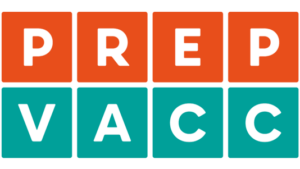December 6, 2023
IAVI statement on PrEPVacc trial
Trial will stop vaccinations due to lack of efficacy.
 The PrEPVacc trial, an African-led, European-supported HIV prevention study running in East and Southern Africa, has announced today at the International Conference on AIDS and STIs in Africa that they will stop vaccinations due to “little or no chance” of vaccine efficacy. The trial, which enrolled 1,512 participants, was designed to test whether two experimental HIV vaccine combination regimens could protect against HIV; it also included a study arm testing a new form of pre-exposure prophylaxis (PrEP) against the existing PrEP standard. This arm of the trial will continue. IAVI provides technical and operational support for the trial through ADVANCE, a 10-year cooperative agreement with the U.S. Agency for International Development (USAID), through the U.S. President’s Emergency Plan for AIDS Relief (PEPFAR).
The PrEPVacc trial, an African-led, European-supported HIV prevention study running in East and Southern Africa, has announced today at the International Conference on AIDS and STIs in Africa that they will stop vaccinations due to “little or no chance” of vaccine efficacy. The trial, which enrolled 1,512 participants, was designed to test whether two experimental HIV vaccine combination regimens could protect against HIV; it also included a study arm testing a new form of pre-exposure prophylaxis (PrEP) against the existing PrEP standard. This arm of the trial will continue. IAVI provides technical and operational support for the trial through ADVANCE, a 10-year cooperative agreement with the U.S. Agency for International Development (USAID), through the U.S. President’s Emergency Plan for AIDS Relief (PEPFAR).
“An effective HIV vaccine remains a crucial goal for ending the transmission of HIV,” said Mark Feinberg, president and CEO of IAVI. “PrepVacc was an important and well-executed trial, and I want to recognize the PrepVacc trial leaders, who successfully implemented this complex trial during the enormous disruptions of COVID-19. Despite these results, IAVI remains optimistic that developing an HIV vaccine is possible. We believe that new approaches designed to induce broadly neutralizing antibodies to HIV are the most promising path forward.”
IAVI also recognizes with gratitude the commitment of trial participants and communities, without whom scientific gains into HIV prevention would not be possible.
“I offer my congratulations to my colleagues who led the PrepVacc trial on the execution of this trial, even though the results of the vaccine arm are not what we had hoped,” said Kundai Chinyenze, IAVI Africa director and chief of party for the ADVANCE project. “This was a three-pronged trial, and very complex to execute. While the vaccine did not produce immunity to HIV, the trial has succeeded in expanding our ability as a field to conduct large, complex efficacy trials in East and Southern Africa. PrEPVacc will also provide us with key data on optimized forms of PrEP. This is valuable for informing future implementation and uptake strategies by local stakeholders in settings where PrEP uptake is low even when accessible.”
For more information on the PrEPVacc trial, please visit the study website.